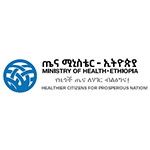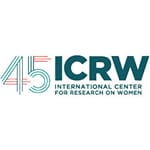Expanding Contraceptive Uptake Among Postpartum Women in Ethiopia
HIGHLIGHTS
- Women in Tigray, Ethiopia want to space births by two or more years, yet, few women use contraceptives in the post-partum period.
- We designed a package of solutions, including a risk-rated referral card applied during vaccination visits, a home visit tracking tool, and a postpartum family planning (PPFP) prompt and counseling sheet.
The Challenge
Three out of four women in Ethiopia want to space births by at least two years. Women may pursue spacing in order to ensure their own health, the health of their existing children, or to shore up economic stability. Yet, only 14% of postpartum women in Ethiopia use contraceptives. Our project aimed to help women who want to space births better achieve that goal by using contraceptives during the postpartum period.
Our Approach
We partnered with Pathfinder International, the Ministry of Health in Ethiopia, Camber Collective, and the International Center for Research on Women (ICRW) to develop and test behaviorally-informed solutions to support contraceptive uptake among postpartum women in Tigray, Ethiopia.
To understand the drivers of contraceptive non-use among postpartum women, with the support of in-country and global partners, we conducted 88 interviews, observations, and focus groups including postpartum women, their husbands, and health providers.
We found that many unintended pregnancies result from an underestimation of pregnancy risk. We also found a strong fear of infertility due to contraceptive use, partner disapproval, and beliefs that long-acting contraceptive methods must be used for their maximum duration.
These insights allowed us to design a solution package that reinforces the value of contraceptives in the postpartum period and helps women follow through if they do have an intention to use contraceptives. The final solution package includes:
- A planning prompt for family planning for women to complete with providers at their antenatal care visits.
- A risk assessment referral card used by providers during immunizations to inform women of their current level of family planning need.
- A counseling sheet to guide providers’ counseling with behaviorally-informed messaging focused on postpartum women.
- A tracking log for providers that reminds them to counsel on family planning and use these tools in their home visits to postpartum women.
Read more about these solutions here.
Results
The solution package was tested in a one-month pilot, which showed that the solutions were well-received and there was anecdotal evidence that the risk assessment referral card, in particular, led to increased family planning (FP) uptake.
A quasi-experimental test of the solutions was then conducted under the challenging circumstances of the COVID-19 pandemic and the ongoing war and humanitarian crisis in Tigray. In exploratory analyses, there was suggestive impact on contraceptive uptake and a few other key outcomes. View the full report here.
In addition, these solutions also sparked the interest of government officials in Bangladesh, where the risk assessment referral card and counseling guide were adapted to the Bangladeshi context and are currently being implemented.
Takeaway
Unintended pregnancies during the postpartum period can have an especially negative impact on the health of the mother, baby, or family’s economic position. In many contexts, where limiting births with contraceptives is not desirable or acceptable, solutions that orient contraceptives as tools to space births are valuable. Additionally, given the vast number of competing priorities which rural, postpartum women have — between caring for the household and farming — solutions that meet them where they are and leverage existing health visits are critical.
Our solution package highlights how behavioral design can address barriers to contraceptive use during the postpartum period while being integrated into existing health system structures.
Interested in our work applying behavioral science to global health? Email gh@ideas42.org or tweet at @ideas42 to join the conversation.
Partners
















